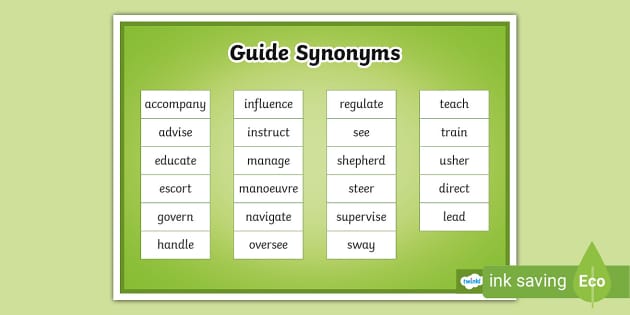Synonyms Guide is an essential tool for anyone looking to expand their vocabulary and express themselves more effectively. Words are powerful, and knowing multiple ways to say the same thing can make your writing and speech more precise, engaging, and impactful.
Whether you’re a student preparing for exams, a professional drafting reports, or a casual writer sharing thoughts online, understanding synonyms can transform the way you communicate. This article explores practical strategies and examples to help you master the art of word choice.
Why a Synonyms Guide is Crucial for Effective Communication
A Synonyms Guide is more than just a list of similar words. It helps you understand subtle differences in meaning, tone, and context. For instance, while “happy” and “joyful” are similar, “joyful” carries a stronger emotional intensity. Choosing the right word can drastically enhance your writing, making it more persuasive and enjoyable to read.
Real-life examples show the impact of precise word choice. Imagine sending a work email and writing “I am excited about the project” versus “I am thrilled about the project.” The second conveys stronger enthusiasm and confidence, which can influence colleagues’ reactions.
How to Use a Synonyms Guide Effectively
Using a Synonyms Guide isn’t about replacing words arbitrarily. It’s about understanding context and nuance. Begin by identifying words you commonly use and look them up in a synonyms guide to explore alternatives. Try substituting them in sentences to see how the meaning and tone shift.
For example, consider the word “important.” Options like “crucial,” “vital,” and “significant” each convey slightly different levels of urgency or emphasis. Practicing this method not only broadens vocabulary but also improves critical thinking and comprehension skills.
Common Categories of Synonyms
Synonyms often fall into categories based on emotion, intensity, or style. For instance, emotional words like “sad” can be replaced with “unhappy,” “melancholy,” or “devastated,” depending on how strong you want the feeling to be.
Another example is descriptive words. Instead of always using “big,” you could use “huge,” “immense,” or “gigantic.” Writers often find that exploring these alternatives makes their work more colorful and engaging. A Synonyms Guide helps you navigate these choices quickly, turning repetitive writing into dynamic expression.
Real-Life Examples of Synonyms in Action
Consider storytelling. Authors frequently use synonyms to keep readers engaged. For instance, a sentence like “The dog was big” can be enhanced to “The dog was enormous” to add more vivid imagery. Similarly, in professional writing, replacing “good” with “excellent” or “outstanding” can elevate the perceived quality of your communication.
Students also benefit from a Synonyms Guide when preparing essays or reports. Using varied vocabulary shows mastery of language, earns higher marks, and makes content more readable. Everyday life examples include text messages, emails, or social media posts where alternative words can make your communication feel thoughtful and polished.
Tips for Expanding Your Vocabulary Using a Synonyms Guide
To maximize the benefits of a Synonyms Guide, start small. Pick a few common words each week and explore their alternatives. Practice writing sentences using these new words in various contexts. Over time, your brain naturally absorbs these alternatives, making them part of your active vocabulary.
Reading is another effective strategy. Books, articles, and blogs expose you to new words in context. Highlight words you’re unfamiliar with and consult your synonyms guide to discover alternative expressions. This method reinforces learning and helps you internalize language nuances.
The Role of Digital Tools in Modern Synonyms Guides
Technology has made using a Synonyms Guide easier than ever. Online tools and apps provide instant access to synonyms, antonyms, and example sentences. Features like thesaurus extensions in word processors or language apps on smartphones enable users to explore alternatives as they write, fostering continuous learning.
Gamifying vocabulary practice also boosts engagement. Apps may challenge you to replace overused words or select the most precise synonym for a given context. This approach transforms vocabulary expansion from a mundane task into an interactive experience, keeping learners motivated.
Mastering Synonyms for Professional and Creative Growth
Using a Synonyms Guide enhances both professional and creative writing. In business, the right word choice can influence negotiations, proposals, or presentations. In creative writing, varied vocabulary prevents monotony and builds more immersive narratives.
For instance, instead of repeatedly writing “said” in dialogue, you can use “remarked,” “exclaimed,” or “muttered” to convey tone and emotion. These subtle differences make content richer and more enjoyable for readers. Professionals who master synonym usage often communicate more persuasively, gaining credibility and trust.
Read also:
juxtaposition meaning
interjection
legerdemain meaning
words beginning with x
orry net worth
muskkaan jaferi movies and tv shows
vishakha mulye
harshad mehta son net worth

